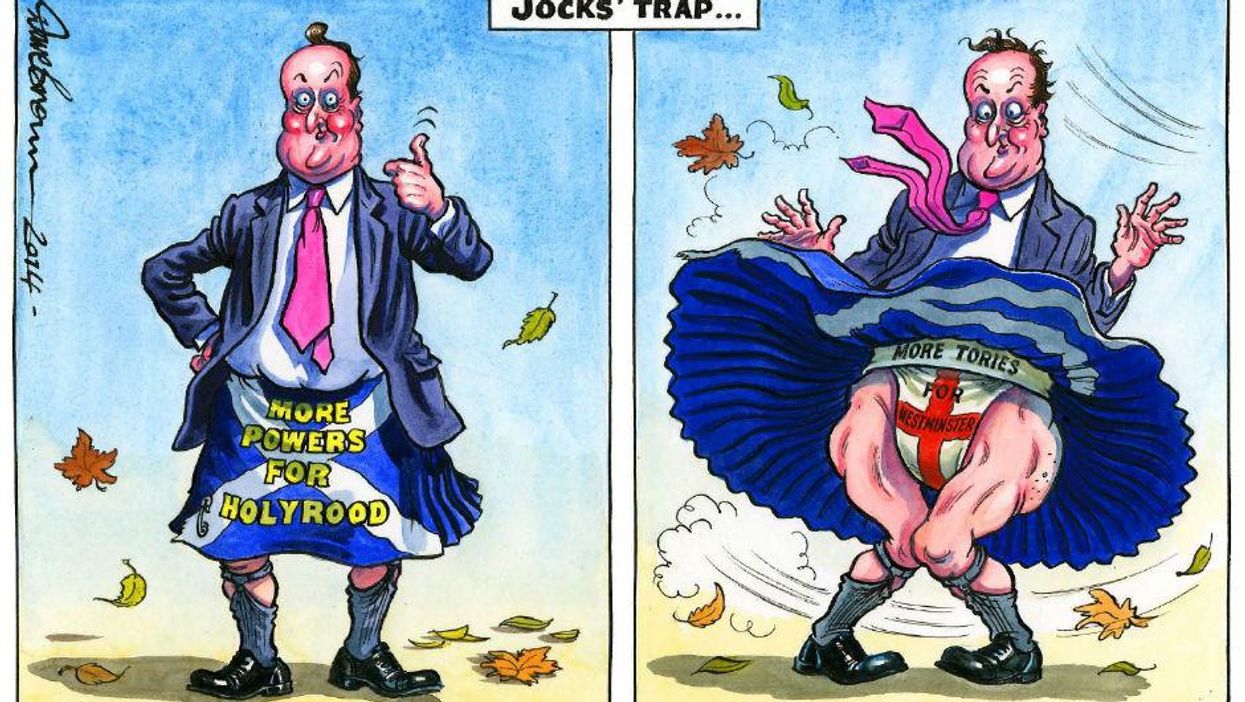News
James Cusick
Nov 28, 2014

The Smith Commission yesterday released its long-awaited report detailing devolved powers to the Scottish parliament.
We have cut through the small print to see what it all means for the people of Scotland and the rest of the UK...
Income Tax
The report: Income tax will ostensibly remain a shared UK tax, with Westminster continuing its authority over the UK’s Budget. But Scotland has been handed control over the setting of income tax rates and thresholds at which they are paid for non-savings and non-dividend income. Crucially, all of the income tax paid by Scottish taxpayers now stays in Scotland.
What this means: Holyrood will no longer be what the Scottish Tory leader, Ruth Davidson, called a “pocket money parliament”. Some £14bn in income tax and welfare benefits will now be under its control.
VAT
The report: The first 10 per cent of VAT revenue raised in Scotland will now be added to the Scottish Government’s budget. A corresponding adjustment will lower the amount Scotland gets through the Barnett Formula – which determines what “block grant” Scotland gets from overall UK spending.
What this means: It won’t matter if Scotland’s taxpayers buy more or less. VAT rates can’t be adjusted by Holyrood. But the change is part of the bundle of funding supposed to show that Scotland is more of a self-contained economy than it was before the referendum.
Benefits
The report: Benefits for carers; the disabled, attendance and carers’ allowances; disability living allowances; personal independence payments; industrial injuries; severe disablement payments and others, will now be devolved to Holyrood. It means that the Scottish Parliament will be able to control the value of an increasing number of benefits. Including income tax and welfare payments, the Holyrood parliament will now control £14bn in funds.
What this means: This is a significant change to the authority and the way Scotland’s own parliament will be seen by its electorate. The SNP has shown since it took power in 2007 that it can do things differently from England. Welfare gives them an enhanced opportunity to show their delivery of social justice can be different. Equally, it gives the opportunity to the SNP’s opponents to claim the SNP were given the ammunition, but to legitimately ask what they did with it.
Barnett Formula
The report: The demise of the Barnett Formula is a regular prophesy inside UK politics. But it’s still there – and the report says it should continue despite the constitutional upheaval of Smith. The formula itself is likely to be revised, but although Holyrood has been given enhanced powers, the full cost of running Scotland will still be met through an adjusted grant from Westminster that reflects Scotland’s 5 million population and the overall UK spending level.
What this means: It means Scotland still gets some support money from the South – and the fact this will continue is likely to anger many MPs who would like their constituencies to be treated as well. The bottom line is that this is the price of David Cameron and the other leaders’ promise. Remember what cost there would have been if Scotland chose to leave the union in September.
Universal Credit
The report: Universal credit, the beleaguered plan by the Works and Pensions Secretary, Iain Duncan Smith, to gather six means-tested benefits and tax credits into one single payment, is a potential IT nightmare-in-waiting. The report says UC will remain a reserved benefit administered by the DWP.
The Scottish Government will however be given control to change the frequency of UC payments, and vary plans for single households payments. Holyrood will also have the power to vary housing cots elements of UC – including varying the “under-occupancy charge” (the bedroom tax).
What this means: The bedroom tax is hated in Scotland. But before UC is officially declared a national IT screw-up after May’s election, Holyrood will have the opportunity of possibly declaring the bedroom tax has been given the last rites.
Top 100
The Conversation (0)
x













